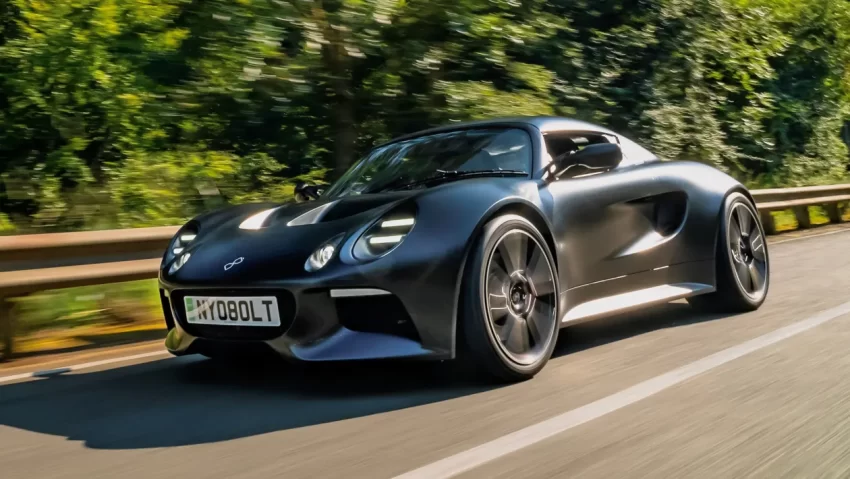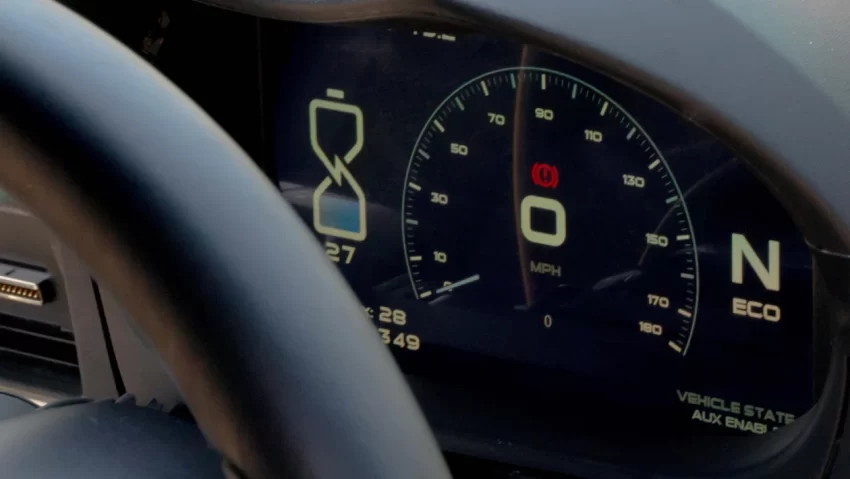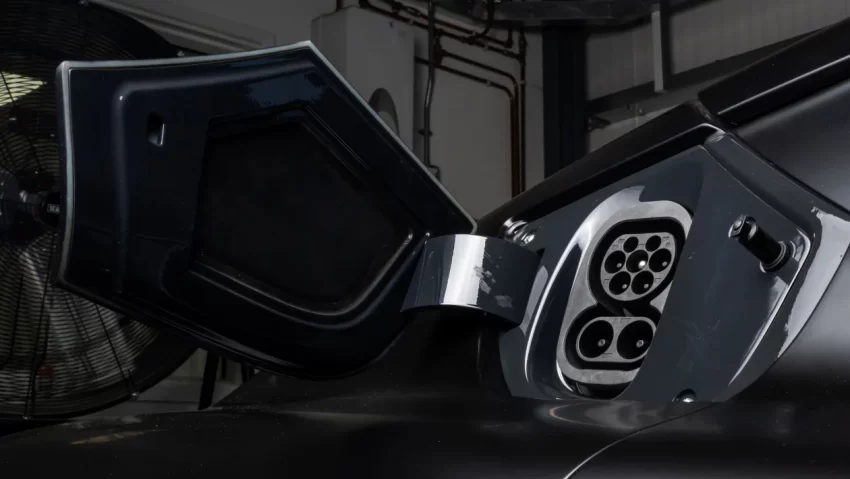
Cambridge start-up Nyobolt makes breakthrough with five-minute electric car charge
A British battery company, Nyobolt, has developed an electric car that can be charged in just five minutes.
Unveiled on Friday, the Cambridge-based company’s prototype vehicle boasts a 155-mile range. Nyobolt is currently in discussions with eight car manufacturers about integrating this technology into high-performance vehicles, with the potential for mass production making it a feature in larger, family cars.
For the first time, this breakthrough technology offers a charging experience comparable to filling up a petrol car. During a demonstration on Thursday, the battery charged from 10% to 80% in less than five minutes, which is at least twice as fast as the quickest-charging electric vehicles currently available.
Prolonged charging times, even at rapid stations, are a common barrier to EV adoption, particularly for those without home charging capabilities. It currently takes around 15 minutes to charge a Tesla Model 3 to 80% at its fastest rate, with many vehicles taking significantly longer. This can lead to “range anxiety,” where drivers fear being unable to recharge their batteries promptly.

Nyobolt’s batteries, developed with research from the University of Cambridge’s chemistry department, use carbon and metal oxide materials in the anode, enabling higher charging speeds without the risk of degradation or fire. Typically, high-voltage charging generates resistance and heat, potentially damaging the battery over time. Nyobolt’s “low impedance” batteries mitigate this risk, allowing for higher charging rates and longevity even after extensive use.
Tests show that the battery can endure 4,000 fast-charge cycles—equivalent to driving 600,000 miles—while retaining over 80% of its original capacity. At the Millbrook Proving Ground in Bedfordshire, Nyobolt demonstrated the technology using a retrofitted Lotus Exige chassis. The car’s battery charged from 1.7% to 80% in about five and a half minutes and from 10% to 80% in four minutes and 37 seconds.
Nyobolt claims that in cooler conditions, the battery can achieve a 0% to 100% charge in roughly six minutes. The vehicle features a 35 kWh battery, which is smaller and lighter than most EV batteries on the market, such as the 60 kWh battery pack in the Tesla Model Y, the UK’s best-selling electric car last year. The smaller size makes the battery cheaper and more efficient, though Nyobolt could produce larger batteries for greater range in the future.
Nyobolt’s initial market focus is on sports car manufacturers, where the lighter batteries offer performance advantages. Sai Shivareddy, Nyobolt’s chief executive, stated that the company plans to produce 1,000 batteries next year for limited edition supercars, aiming for mass production in the next three to four years, which could extend to family cars.

The technology particularly benefits those unable to charge at home, allowing them to recharge quickly, akin to refuelling a petrol car. “You can have the same experience that you get with small cars today where you may not be able to charge overnight,” Shivareddy explained. “But you can fill it up while you’re doing your weekly grocery shopping.”
Shane Davies, Nyobolt’s director of vehicle battery systems, highlighted that “Nyobolt is removing the obstacle of slow and inconvenient charging, making electrification appealing and accessible to those who don’t have the time for lengthy charging times or space for a home charger.”
Despite the promise of faster-charging EVs, the UK’s charging infrastructure requires an overhaul. The demonstration used a 350kW charger, which is rare in the UK. Of the 53,677 public chargers available in January, only 3,835 were ultra-rapid, charging at 150kW or higher. Home charging speeds are typically limited to 7kW.
Shivareddy noted the need for more high-powered chargers, particularly on main highways, to support long-distance travel. “In the UK, we do have more and more fast chargers that are being installed,” he said.
Nyobolt, founded in 2016 by Shivareddy and Dame Clare Grey, a Cambridge University chemistry professor, is already supplying its batteries to an unnamed customer for robotics in US warehouses. This new development in EV battery technology could revolutionise the electric vehicle market, making EVs a more convenient and appealing option for a broader range of consumers.





